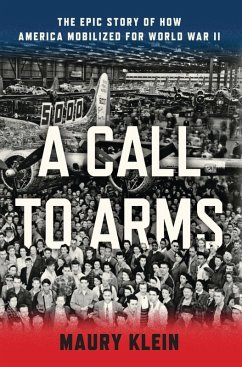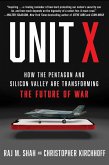The colossal scale of World War II required a mobilization effort greater than anything attempted in all of the world's history. The United States had to fight a war across two oceans and three continents--and to do so, it had to build and equip a military that was all but nonexistent before the war began. Never in the nation's history did it have to create, outfit, transport, and supply huge armies, navies, and air forces on so many distant and disparate fronts.
The Axis powers might have fielded better-trained soldiers, better weapons, and better tanks and aircraft, but they could not match American productivity. The United States buried its enemies in aircraft, ships, tanks, and guns; in this sense, American industry and American workers, won World War II. The scale of the effort was titanic, and the result historic. Not only did it determine the outcome of the war, but it transformed the American economy and society. Maury Klein's A Call to Arms is the definitive narrative history of this epic struggle--told by one of America's greatest historians of business and economics--and renders the transformation of America with a depth and vividness never available before.
The Axis powers might have fielded better-trained soldiers, better weapons, and better tanks and aircraft, but they could not match American productivity. The United States buried its enemies in aircraft, ships, tanks, and guns; in this sense, American industry and American workers, won World War II. The scale of the effort was titanic, and the result historic. Not only did it determine the outcome of the war, but it transformed the American economy and society. Maury Klein's A Call to Arms is the definitive narrative history of this epic struggle--told by one of America's greatest historians of business and economics--and renders the transformation of America with a depth and vividness never available before.









